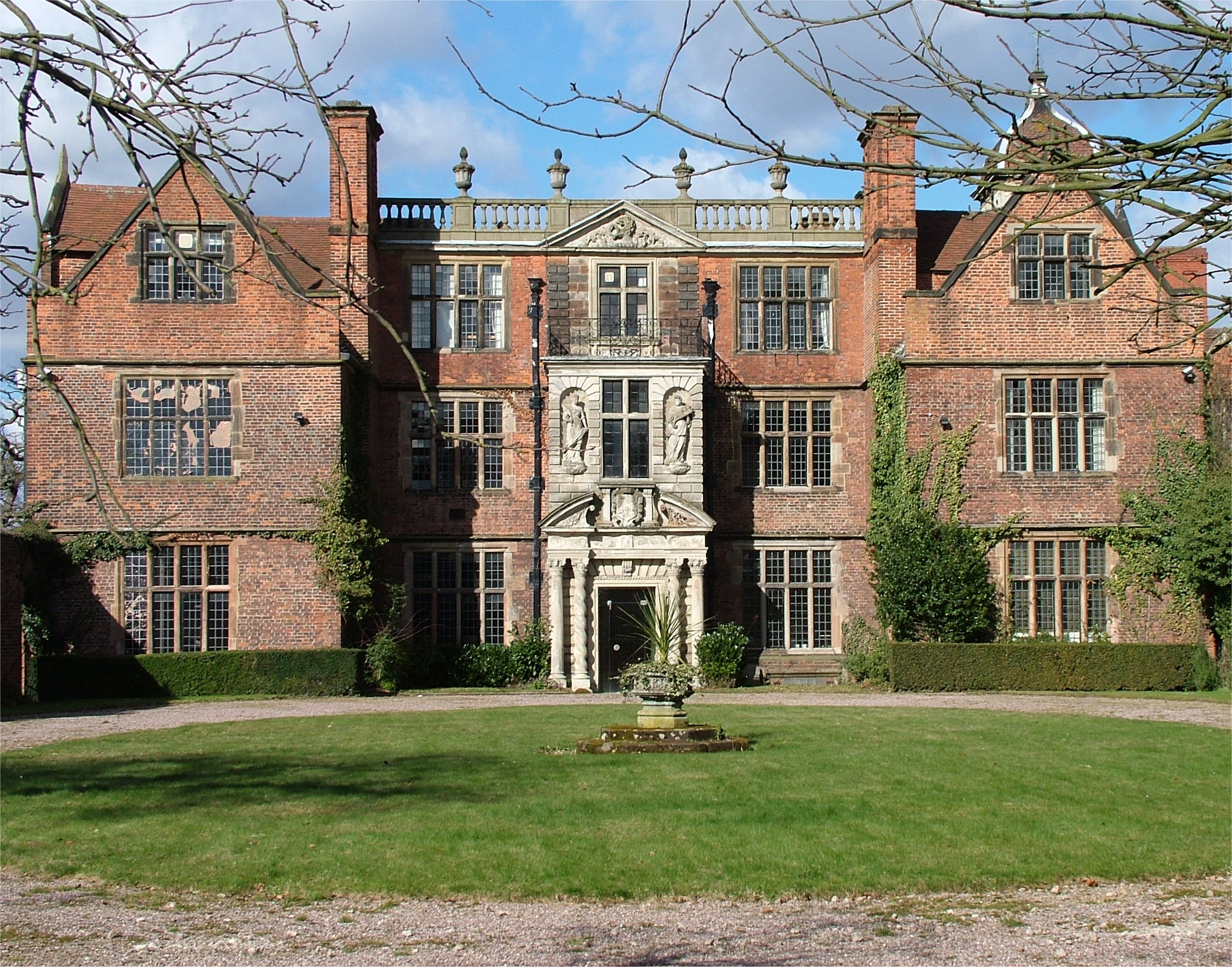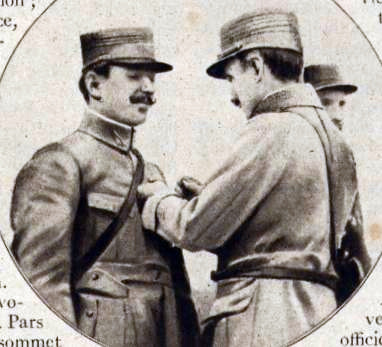|
Edwin Hayne
Captain Edwin Tufnell Hayne was a World War I flying ace credited with 15 aerial victories. Early life Edwin Tufnell Hayne was the son of Emily and Tufnell Hayne. He was born in Johannesburg, South African Republic. He attended King Edward VII School, which opened in 1902. Accidental death Hayne took off from the Castle Bromwich in Bristol F.2 Fighter The Bristol F.2 Fighter is a British First World War two-seat biplane fighter and reconnaissance aircraft developed by Frank Barnwell at the Bristol Aeroplane Company. It is often simply called the Bristol Fighter, ''"Brisfit"'' or ''"Bif ... serial number F5098 with Major Maurice Perrin in the back seat. The plane's engine died and Hayne tried to turn and land. The plane stalled and fell. Hayne died in the crash; Perrin died later in hospital. Honors and awards Distinguished Service Cross (DSC) (As announced in Supplement to the London Gazette, 30 November 1917.) In recognition of his services with a wing of the R.N. ... [...More Info...] [...Related Items...] OR: [Wikipedia] [Google] [Baidu] |
South African Republic
The South African Republic ( nl, Zuid-Afrikaansche Republiek, abbreviated ZAR; af, Suid-Afrikaanse Republiek), also known as the Transvaal Republic, was an independent Boer Republic in Southern Africa which existed from 1852 to 1902, when it was annexed into the British Empire as a result of the Second Boer War. The ZAR was established as a result of the 1852 Sand River Convention, in which the Government of the United Kingdom, British government agreed to formally recognise independence of the Boers living north of the Vaal River. Relations between the ZAR and Britain started to deteriorate after the British Cape Colony expanded into the Southern African interior, eventually leading to the outbreak of the First Boer War between the two nations. The Boer victory confirmed the ZAR's independence; however, Anglo-ZAR tensions soon flared up again over various diplomatic issues. In 1899, war again broke out between Britain and the ZAR, which was swiftly occupied by the British mil ... [...More Info...] [...Related Items...] OR: [Wikipedia] [Google] [Baidu] |
Castle Bromwich
Castle Bromwich () is a large suburban village situated within the Metropolitan Borough of Solihull in the English county of the West Midlands. It is bordered by the rest of the borough to the south east; also Sutton Coldfield to the east and north east, Shard End to the south west, Castle Vale, Erdington and Minworth to the north and Hodge Hill to the west – all areas of the City of Birmingham. It constitutes a civil parish, which had a population of 11,857 according to the 2001 census, falling to 11,217 at the 2011 census. The population has remained quite stable since then; the 2017 population estimate was 12,309. It was a civil parish within the Meriden Rural District of Warwickshire until the Local Government Act 1972 came into force in 1974, when it became part of the Metropolitan Borough of Solihull. In 1861, the population was 613. This rose to just over 1,000 in the 1920s, when half of the original parish was ceded to the City of Birmingham for the construction ... [...More Info...] [...Related Items...] OR: [Wikipedia] [Google] [Baidu] |
Warwickshire
Warwickshire (; abbreviated Warks) is a county in the West Midlands region of England. The county town is Warwick, and the largest town is Nuneaton. The county is famous for being the birthplace of William Shakespeare at Stratford-upon-Avon and Victorian novelist George Eliot, (born Mary Ann Evans), at Nuneaton. Other significant towns include Rugby, Leamington Spa, Bedworth, Kenilworth and Atherstone. The county offers a mix of historic towns and large rural areas. It is a popular destination for international and domestic tourists to explore both medieval and more recent history. The county is divided into five districts of North Warwickshire, Nuneaton and Bedworth, Rugby, Warwick and Stratford-on-Avon. The current county boundaries were set in 1974 by the Local Government Act 1972. The historic county boundaries included Coventry, Sutton Coldfield and Solihull, as well as much of Birmingham and Tamworth. Geography Warwickshire is bordered by Leicestershire to the nort ... [...More Info...] [...Related Items...] OR: [Wikipedia] [Google] [Baidu] |
World War I
World War I (28 July 1914 11 November 1918), often abbreviated as WWI, was one of the deadliest global conflicts in history. Belligerents included much of Europe, the Russian Empire, the United States, and the Ottoman Empire, with fighting occurring throughout Europe, the Middle East, Africa, the Pacific, and parts of Asia. An estimated 9 million soldiers were killed in combat, plus another 23 million wounded, while 5 million civilians died as a result of military action, hunger, and disease. Millions more died in genocides within the Ottoman Empire and in the 1918 influenza pandemic, which was exacerbated by the movement of combatants during the war. Prior to 1914, the European great powers were divided between the Triple Entente (comprising France, Russia, and Britain) and the Triple Alliance (containing Germany, Austria-Hungary, and Italy). Tensions in the Balkans came to a head on 28 June 1914, following the assassination of Archduke Franz Ferdin ... [...More Info...] [...Related Items...] OR: [Wikipedia] [Google] [Baidu] |
Distinguished Service Cross (United Kingdom)
The Distinguished Service Cross (DSC) is a third-level military decoration awarded to officers; and, since 1993, Naval rating, ratings and other ranks of the British Armed Forces, Royal Fleet Auxiliary and the British Merchant Navy have been included. Additionally, the award was formerly awarded to members of other Commonwealth of Nations, Commonwealth countries. The DSC is "awarded in recognition of an act or acts of exemplary gallantry during active operations against the enemy at sea." Since 1979, it can be awarded posthumously. History The award was originally created in 1901 as the Conspicuous Service Cross, for award to warrant officer, warrant and subordinate officers, including midshipman, midshipmen, ineligible for the Distinguished Service Order. It was renamed the Distinguished Service Cross in October 1914, eligibility being extended to all naval officers (commissioned and warrant) below the rank of lieutenant commander.Abbott & Tamplin, pages 107-109. From March 1 ... [...More Info...] [...Related Items...] OR: [Wikipedia] [Google] [Baidu] |
Distinguished Flying Cross (United Kingdom)
The Distinguished Flying Cross (DFC) is the third-level military decoration awarded to officers, and since 1993 to other ranks, of the United Kingdom's Royal Air Force and other services, and formerly to officers of other Commonwealth countries, for "an act or acts of valour, courage or devotion to duty whilst flying in active operations against the enemy". History The award was established on 3 June 1918, shortly after the formation of the Royal Air Force (RAF), with the Royal Warrant published on 5 December 1919. It was originally awarded to RAF commissioned and warrant officers, including officers in Commonwealth and allied forces. In March 1941 eligibility was extended to Naval Officers of the Fleet Air Arm, and in November 1942 to Army officers, including Royal Artillery officers serving on attachment to the RAF as pilots-cum-artillery observers. Posthumous awards were permitted from 1979. Since the 1993 review of the honours system as part of the drive to remove disti ... [...More Info...] [...Related Items...] OR: [Wikipedia] [Google] [Baidu] |
Flying Ace
A flying ace, fighter ace or air ace is a military aviator credited with shooting down five or more enemy aircraft during aerial combat. The exact number of aerial victories required to officially qualify as an ace is varied, but is usually considered to be five or more. The concept of the "ace" emerged in 1915 during World War I, at the same time as aerial dogfighting. It was a propaganda term intended to provide the home front with a cult of the hero in what was otherwise a war of attrition. The individual actions of aces were widely reported and the image was disseminated of the ace as a chivalrous knight reminiscent of a bygone era. For a brief early period when air-to-air combat was just being invented, the exceptionally skilled pilot could shape the battle in the skies. For most of the war, however, the image of the ace had little to do with the reality of air warfare, in which fighters fought in formation and air superiority depended heavily on the relative availability ... [...More Info...] [...Related Items...] OR: [Wikipedia] [Google] [Baidu] |
Bristol F
Bristol () is a city, ceremonial county and unitary authority in England. Situated on the River Avon, it is bordered by the ceremonial counties of Gloucestershire to the north and Somerset to the south. Bristol is the most populous city in South West England. The wider Bristol Built-up Area is the eleventh most populous urban area in the United Kingdom. Iron Age hillforts and Roman villas were built near the confluence of the rivers Frome and Avon. Around the beginning of the 11th century, the settlement was known as (Old English: 'the place at the bridge'). Bristol received a royal charter in 1155 and was historically divided between Gloucestershire and Somerset until 1373 when it became a county corporate. From the 13th to the 18th century, Bristol was among the top three English cities, after London, in tax receipts. A major port, Bristol was a starting place for early voyages of exploration to the New World. On a ship out of Bristol in 1497, John Cabot, a Venetia ... [...More Info...] [...Related Items...] OR: [Wikipedia] [Google] [Baidu] |
1895 Births
Events January–March * January 5 – Dreyfus affair: French officer Alfred Dreyfus is stripped of his army rank, and sentenced to life imprisonment on Devil's Island. * January 12 – The National Trust for Places of Historic Interest or Natural Beauty is founded in England by Octavia Hill, Robert Hunter and Canon Hardwicke Rawnsley. * January 13 – First Italo-Ethiopian War: Battle of Coatit – Italian forces defeat the Ethiopians. * January 17 – Félix Faure is elected President of the French Republic, after the resignation of Jean Casimir-Perier. * February 9 – Mintonette, later known as volleyball, is created by William G. Morgan at Holyoke, Massachusetts. * February 11 – The lowest ever UK temperature of is recorded at Braemar, in Aberdeenshire. This record is equalled in 1982, and again in 1995. * February 14 – Oscar Wilde's last play, the comedy ''The Importance of Being Earnest'', is first shown at St Jam ... [...More Info...] [...Related Items...] OR: [Wikipedia] [Google] [Baidu] |
1919 Deaths
Events January * January 1 ** The Czechoslovak Legions occupy much of the self-proclaimed "free city" of Pressburg (now Bratislava), enforcing its incorporation into the new republic of Czechoslovakia. ** HMY ''Iolaire'' sinks off the coast of the Hebrides; 201 people, mostly servicemen returning home to Lewis and Harris, are killed. * January 2– 22 – Russian Civil War: The Red Army's Caspian-Caucasian Front begins the Northern Caucasus Operation against the White Army, but fails to make progress. * January 3 – The Faisal–Weizmann Agreement is signed by Emir Faisal (representing the Arab Kingdom of Hejaz) and Zionist leader Chaim Weizmann, for Arab–Jewish cooperation in the development of a Jewish homeland in Palestine, and an Arab nation in a large part of the Middle East. * January 5 – In Germany: ** Spartacist uprising in Berlin: The Marxist Spartacus League, with the newly formed Communist Party of Germany and the Independent Social Democ ... [...More Info...] [...Related Items...] OR: [Wikipedia] [Google] [Baidu] |





